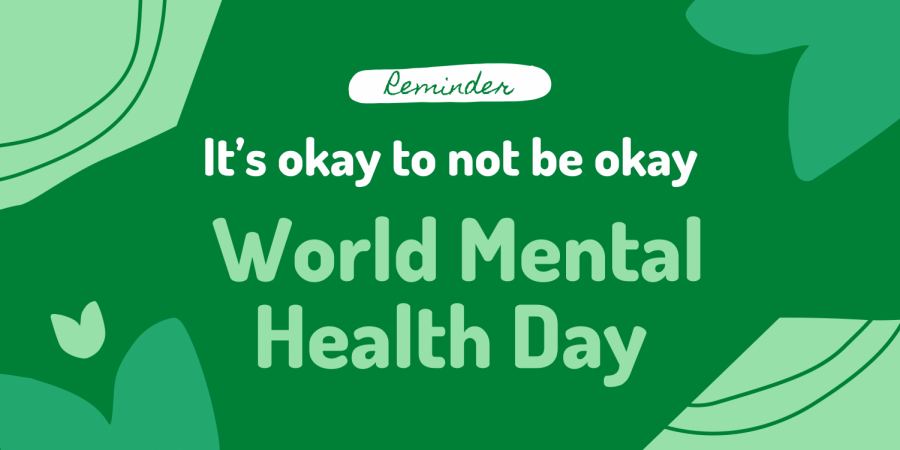Student headspace
Smithson Valley recognizes National Depression and Mental Health Screening Month
Bethany Mann via Canva Graphics
Students were asked to wear green on Monday to recognize National Depression and Mental Health Screening Month. (Graphic made via Canva)
October 12, 2021
A constant state of nervousness and anxiety: that’s how freshman Isabella Hickey feels she lives her life. She was first diagnosed with major depressive disorder and generalized anxiety disorder when she was 12.
“I was raised knowing that my family had mental health disorders,” Hickey said. “I’ve known people who have taken their own life. My mental health is always on my mind.”
According to the Center for Disease Control and Prevention, 7 percent of children ages 13-17 have been diagnosed with anxiety, and 3 percent have been diagnosed with depression. Diagnoses of depression and anxiety in teenagers increased 3 percent in less than 20 years.
October is National Depression and Mental Health Screening Month, and Students United for Respect and Equality (S.U.R.E.) Club uses this time to raise awareness about mental health.
“I think now more than ever, we’re seeing an explosion of mental health problems,” S.U.R.E. Club adviser Jimmy Wilson said. “It’s important to let kids know where their resources are here at Smithson Valley High School.”
Oct. 10 was World Mental Health Day, and students were encouraged to wear green on Monday in support of mental health. S.U.R.E. Club also puts up posters around school to raise awareness.
“I feel like a lot of it is tied up with competitiveness and pressure,” S.U.R.E. Club’s Mental Health Chair Mason Mock said. “Nowadays especially, you’ll see kids struggling over five (Advanced Placement classes), not because anybody’s making them, but because they feel that they have to. Colleges are basically waving their grades in their faces.”
The recent rise in diagnosis of anxiety and depression also couples with the effects of world events.
“We could go on for a long time about some of the issues that COVID has created,” Student Support Specialist Lisa McGinnis said. “Just the isolation, anxiety, all those things, and I’ll be honest, I think social media has had something to do with that.”
Facebook found itself in a recent scandal after whistleblower Francis Haugen came out against the company, saying the platform promotes posts that are harmful to teen girls’ mental health and Facebook profits from outrage.
“I feel like that can create more issues for people,” McGinnis said. “I think that’s part of why we’re starting to recognize more that it’s necessary to talk about these things.”
High expectations from teachers and parents also trouble teens.
“I deal with anxiety,” sophomore Jessie Trevino said. “Whenever I started struggling with school, I noticed it would affect me more. I think school plays a big part in that.”
This school is known for its academic excellence, and students feel expected to excel. Hickey said she expected herself to excel.
“The thought of what will happen if I don’t get an A on a test is always on my mind,” Hickey said. “If I don’t get an A, does that mean I won’t have an A in the class? It’s an endless cycle.”
S.U.R.E. Club creates more resources for students dealing with mental health. There are also ways for teachers to reach out to their students.
“We’re working on getting teachers to put more resources up in their Google Classroom,” Wilson said, “so that students can access those without standing in front of the suicide prevention or like right in front of all their peers.”
One of the goals of this month is for students to know the signs of depression and anxiety.
“Changing behavior I think is one of the biggest things to look for and friends are probably more likely to see that than honestly parents will,” McGinnis said. “You may have someone who was motivated and now they’re not or someone who was pretty much a happy person or generally felt good and now they’re not feeling that way. Always take it seriously; trust your gut.”
Not every student struggles with their mental health, but for those like Hickey, mental health plays a large role in their everyday life.
“I know that it’s real, and you’re valid if you have a mental health disorder,” Hickey said. “Your emotions are valid. You are valid. I think that’s what people need to remember.”


